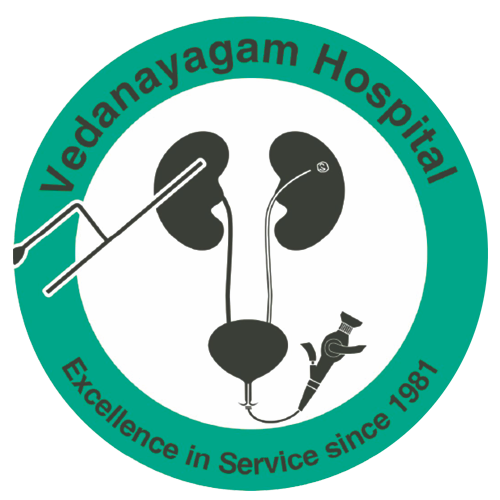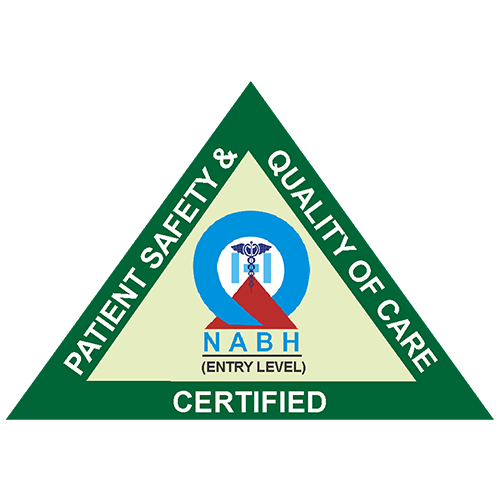Nephrology
- Home
- Services
- Nephrology
For patients with kidney problems, Vedanayagam Hospital offers a full spectrum of consultation, diagnostic, and therapeutic services. The range of care includes:
- Earliest detectable changes in kidney function.
- End-stage kidney disease.
- Kidney stones.
- Acute renal failure.
- Chronic kidney disease
Dialysis
Patients with renal failure receive dialysis treatment. Modern Dialysis equipment is used, and patients recovering in the ICU do not have to move around for dialysis because the hospital provides a handy and rapid facility for bedside dialysis across ICU beds. Haemodialysis and peritoneal dialysis are the two different forms of dialysis therapies. Our facility offers both of these dialysis treatment options. Technically skilled dialysis professionals guarantee excellent patient monitoring during the treatment and provide individualized care. Throughout the course of the treatment, the patient’s condition is regularly tracked. To oversee the dialysis procedure, a medical officer with the appropriate training is constantly present. By strictly isolating patients and equipment, patients are safeguarded against cross-infection. For various patient groups, there are even distinct washrooms.
For individuals who have the hepatitis virus, there are separate dialysis rooms. Our dialysis unit is highly well-organized, providing accurate appointments for each patient’s dialysis. Throughout the course of the treatment, the patient’s condition is regularly checked by monthly tests, yearly scans, and other expert views. At each dialysis appointment, the patient visits the nephrologist. Our team at the Department of Nephrology is made up of Senior Consultants with extensive expertise in the management and treatment of kidney disorders, as well as skilled nurses and dialysis technicians who put the needs of their patients first. Thus, the dialysis unit offers individualized, skilled, and modern treatment and effectively rehabilitates patients.
Peritoneal Dialysis
The patient may get intermittent peritoneal dialysis up to two or three times per week. Following the patient’s admission, this is done. Typically, one treatment lasts for 24 hours. For reversible kidney surgery, this was formerly done. Since many patients have reversible renal failure, many patients might not need treatment more than a few times.
Patients receiving the other type of peritoneal dialysis are often those with end-stage renal failure and chronic kidney disorders. Continuous ambulatory peritoneal dialysis is what this is known as. This entails permanently inserting a patient’s peritoneal cavity with an extremely flexible peritoneal dialysis catheter. A qualified surgeon often does this under general anesthesia. Nearly 2 liters of peritoneal dialysis fluid are fed into the belly once the catheter is placed in the abdomen, and it is removed after 4 hours. Waste materials from the patient’s blood seep into the fluid during this 4-hour period, lowering the level of waste concentration in the body.
At the conclusion of the four hours, this fluid is withdrawn, and new fluid is injected. Every day, it is done three times. This may also be done hygienically at home. It will be beneficial if the patient can receive assistance from a family member who has the necessary training in this area. These patients do not frequently visit the hospital, but once a month, appointments with nephrologists are required. Typically, a patient takes supplies for a month at a time. For this type of treatment to be carried out successfully and without complications, proper adherence to sterile practices and persistent adherence to the doctor’s instructions are crucial. This is known as Continuous ambulatory peritoneal dialysis (CAPD). Patients who cannot travel to a hemodialysis center or experience problems during hemodialysis are the best candidates for this CAPD therapy. We are experts in caring for CAPD patients.



